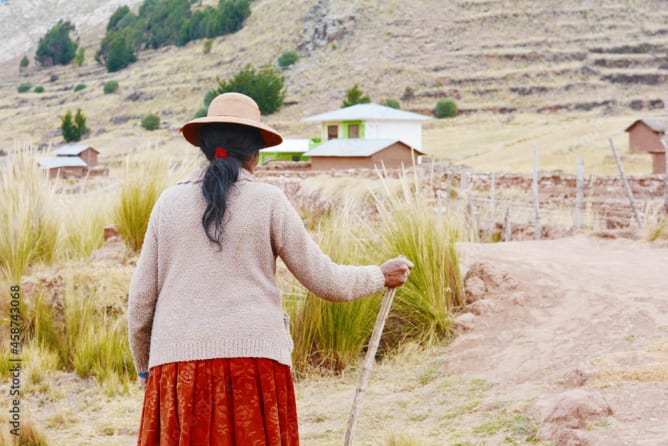Understanding peace is a first step to building it
What does «peace» mean? We often celebrate signing of peace agreements at the end of a war. However, this is only the first step. Too often, peace agreements remain only words on paper. As a result, different forms of violence continue and most conflicts re-erupt a few years after signing the agreement. «Implementation» has therefore become a buzzword and a «holy grail» among peacebuilding practitioners and policy-makers. Yet, we still do not know enough about how, when, and under what conditions it happens. With my research, I hope to close this gap, by:
-
Providing evidence about the processes and mechanisms that lead to the implementation of peace agreements, and formulating concrete recommendations for designing more impactful processes – using a global analysis of comparative statistical data and the case study of Colombia.
-
Bringing attention to local and informal initiatives to implement the Colombian peace agreement, and understanding how they contribute to official processes and mechanisms.
-
Understanding what «success» in the implementation of the peace agreement in Colombia would mean to those most affected by it - including in particular diverse Colombian women.
-
Providing a space for diverse actors involved in the implementation of the peace agreement in Colombia to come together and plan an inclusive way towards a more effective implementation.
To make this happen, I will work closely with diverse Colombian activists that have been at the forefront of the peace agreement implementation. With your support, I will:
-
Organise workshops during which diverse Colombian women will discuss the process of implementation, the meaning of «peace», and provide guidance for the direction of my research – in line with the collaborative methodologies approach to decolonial research.
-
Travel to local departments in Colombia to meet with and interview diverse women, better understand their perspectives, and document the initiatives they run.
-
Work with diverse Colombian women to co-create research outputs. This will include not only academic papers, but also policy briefs, infographics, videos, social media content and other products that will be useful for the activists’ work and advocacy.
-
Support the research participants to design and implement campaigns and initiatives that will turn the research findings into practice.
This project is part of my doctoral research, and will inform my doctoral thesis and academic papers. However, I plan for it to be more than that: I hope its findings will support better practices in the design and implementation of peace agreements, as detailed below.

Towards a better practice of peacebuilding
Before embarking on this research adventure, I worked as a peacebuilding professional for 10 years. I supported women peacebuilders in over 20 countries in their work, and have witnessed first-hand their work and potential to effect change. However, I also witnessed the challenges they face.
This is why I started this project. From my conversations with Colombian women peace activists, it was very clear that they are proud of the peace agreement and committed to implementing it. At the same time, I could also see a lot of frustration as the implementation does not align with what they expect.
To close this gap, I expect the research will result in:
-
Concrete recommendations for designing better peace processes (in Colombia and beyond): I hope the results of the research will be useful to Colombian peace activists and policy-makers around the world to design and implement better peace processes, leading us to a more peaceful future.
-
Suggestions of new approaches to measuring success in peace agreement implementation, which could be replicated globally: I hope the research will provide a platform for diverse Colombian women to exchange among each other, as well as to discuss with those in charge of the implementation of the peace agreement, leading to new innovative approaches and initiatives for better implementation.
-
Bringing attention to the voices of diverse Colombian women: I hope the written and audio-visual materials created together with these research participants will highlight their perspectives on peace and the peace agreement.
I have supported and implemented such interactive and strategic spaces before - I am confident I can do it again!

Your contribution will help me amplify more voices!
Colombian peace activists since the very inception of the project, and continue to include them in its design.
I plan to bring together diverse Colombian peace activists at different points during the research - including during an inception and design workshop at the very beginning and an analysis workshop to jointly reflect on the emerging findings and their practical consequences and applications.
I also plan to work with local researchers in at least two departments, to be able to reach an even wider and more diverse array of people - and amplify their perspectives on peace!
However, truly participatory research requires funding. While I am able to cover some costs of the research, your contribution will be invaluable in helping me reach more people.
Everything you donate will go towards the project - and at least 80% will go directly to Colombian women: covering the costs of their travel, helping me pay fair fees for local researchers, or supporting follow-up campaigns and initiatives based on the research findings.
